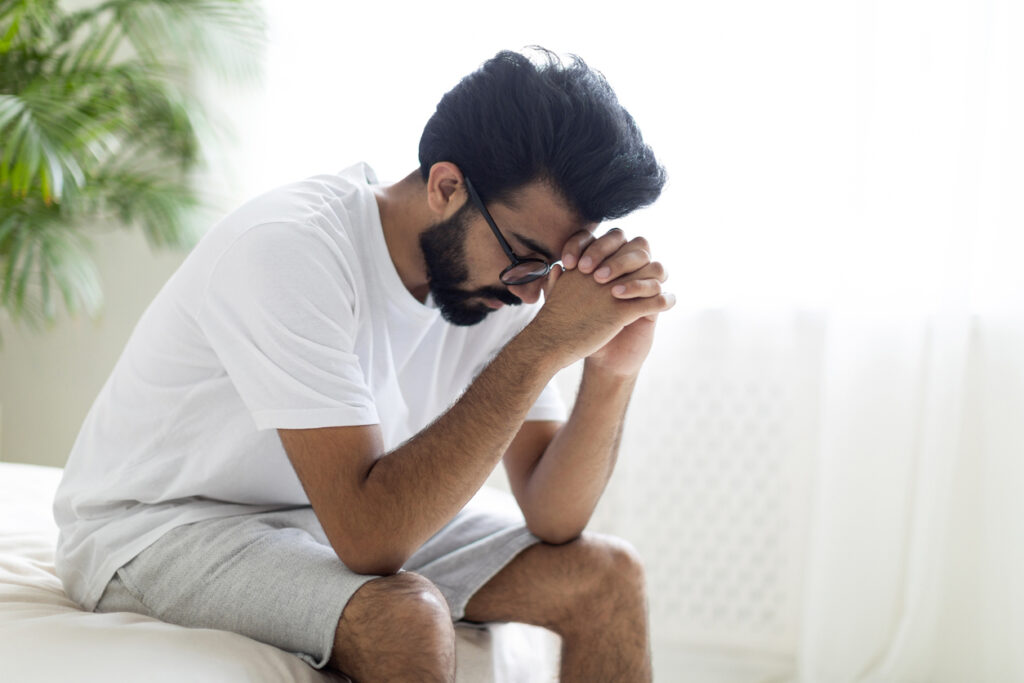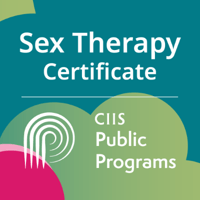Erectile dysfunction (ED) was mainly seen as an issue that only affects older men, but it’s actually a growing concern among younger men too. Many younger clients I see in therapy are reporting challenges with ED. But what’s causing these issues in men who are otherwise in the prime of life? And more importantly, what can be done to help? Hint- its not just medications.
In this post, we will explore some of the causes that may contribute to young men having difficulty with gaining or maintaining an erection or issues with orgasm. From lifestyle choices and stress to medical conditions, understanding ED in young men is the first step toward finding solutions. If you or someone you know has been facing this issue, please read on to learn more about potential causes of ED, how a sex therapist might help a client with this condition, and some strategies to improve sexual health and well-being.
What Causes Erectile Dysfunction in Younger Men?
Erectile dysfunction in younger men is one of those topics that is really hard to open up about. The stereotypes of young men’s virility are plentiful, which only contributes to the pressure young men face to feel as though they must always perform sexually and never experience ED. That is why it is so important to start with an overview of the top underlying causes that might be causing a young guy to experience ED. Unlike older men, where ED is often linked to physiological issues like decreased blood flow or nerve function, ED in young men may be caused by different underlying issues.
Several factors contribute to ED in younger men, often a combination of physical, mental, and lifestyle components. Performance anxiety, stress, depression, porn, SSRI use and sexuality can interfere with the body’s natural response.
1- Stress and ED
Stress, in particular, has a significant impact. We know that research shows chronic stress raises cortisol levels, which can affect testosterone production and sexual function. For men in their 20s and 30s, high expectations, work pressure, and financial stress can create a vicious cycle of stress and performance anxiety, worsening ED symptoms over time. Combined with a sedentary lifestyle or lack of regular physical activity, stress and poor lifestyle choices can negatively impact sexual performance.
2- Porn and ED
One increasingly common factor is the impact of excessive pornography consumption, often referred to as “porn-induced ED”. It is believed that frequent consumption of pornography can affect the brain’s reward system, essentially desensitizing it to natural sexual stimuli. Over time, this desensitization can make it difficult for individuals to become aroused or maintain an erection in real life, as the brain begins to crave the specific type of stimulation found in pornography rather than the intimacy of a real partner.
3- SSRI’s and ED
Another cause I see in young male clients is the use of selective serotonin reuptake inhibitors (SSRIs), a class of medications commonly prescribed for depression and anxiety. While these medications are highly effective in managing mental health conditions, they are also known to affect sexual function. Side effects of SSRIs often include reduced libido, delayed ejaculation, and, for some, difficulty achieving or maintaining an erection.
The side effects of SSRIs on sexual function can be frustrating, especially for those who rely on these medications for mental health support. Addressing these side effects often requires a collaborative approach between the client, healthcare provider and therapist to find a balance between managing mental health and minimizing unwanted sexual side effects.
4- Sexuality & ED
For some men and women, forming a strong emotional bond is required before they can experience sexual attraction. This orientation is referred to as “demisexual.” If a demisexual man is attempting intimacy without this established emotional connection, it may result in a lack of arousal, difficulty in achieving or maintaining an erection, or even anxiety around performance.
Without realizing that their sexual orientation might influence their response, some may misinterpret this as ED rather than recognizing the deeper emotional aspect necessary for arousal.

The pain of struggling with Erectile Dysfunction
Stereotypes about young men often portray them as naturally virile, with boundless energy and a constant desire for sex, suggesting that they should be at their “peak” of physical and sexual performance. This stereotype creates unrealistic expectations and pressures young men to feel as though they must always perform sexually and never experience issues like erectile dysfunction. For young men with ED, the impacts on their self-confidence and relationships can lead to a sense of isolation and frustration.
And in therapy talk, nothing can heal if we keep it a secret. Staying silent can worsen the problem, creating a cycle where fear of failure or judgment exacerbates the issue, reinforcing performance anxiety and sometimes even avoidance of sex altogether.
What I see as a sex therapist treating ED
As a sex therapist, many clients come knocking on my door looking for a “simple trick” to treat their ED. As you may have started to understand from reading this post, treating ED in younger men can be more complex than any quick solution might offer.
In therapy, after a client has ruled out any medical issues, we would start by exploring underlying psychological factors. Anxiety, particularly performance anxiety , is one of the leading causes of ED in younger men. In sessions, we might look for patterns in behavior, thoughts, and feelings that might contribute to this anxiety. Exploring self-image, personal expectations, and any past experiences or trauma related to sexuality can reveal important insights.
The Importance of Open Communication and Support
Therapists can also work closely with clients to encourage open communication with partners. While this might sound like a frightening conversation, I see results when both partners understand the nature of ED and can discuss it without fear or blame. Talking with your partner reduces the pressure on the individual experiencing it. Providing these tools and perspectives is essential in helping young men feel empowered rather than defeated by ED.
Strategies to Overcoming Erectile Dysfunction
There is hope for young men dealing with ED, since many causes are treatable with the right approach. In my practice, I like to approach treatment holistically and with the belief that treatment of ED is not a one-size fits all intervention.
Medical & Lifestyle Interventions
Improvements in physical health is key in treating young men with ED. I encourage every client to have a full workup done with their primary care doctor to rule out a medical or hormonal issues that may be contributing to performance issues, such as cardiovascular disease, obesity, or low testosterone. Medical treatments, including medications like PDE5 inhibitors (e.g., Viagra), can be effective for some men, but they work best in conjunction with lifestyle and mental health support.
Sex Toys
Another favorable option is incorporating male pleasure enhancing sex toys, such as vibrators, rings, pumps and sleeves. While there has not been extensive research on the benefits of sex toys, many men report increased arousal and pleasure by increasing blood flow or stimulation.
Sensate Focus: A Mindful Approach to Intimacy
One therapeutic technique that has proven effective for many men with ED is sensate focus. Developed as part of sex therapy, sensate focus is a gradual, step-by-step process that helps reduce performance anxiety by shifting the focus away from sexual “performance” and toward enjoying physical intimacy.
This technique can be especially beneficial for young men who experience performance anxiety, stress-related ED, or who identify as demisexual and need a strong emotional connection for sexual arousal. Sensate focus encourages mindfulness and fosters a deeper connection, helping partners understand each other’s needs while also making the process enjoyable and intimate.
What should I do next?
Don’t let ED become your silent issue—reach out, seek help, and start your journey to better sexual health and well-being. For those looking to take action today, consider booking a consultation with me to take charge of your sexual health and live life better.





